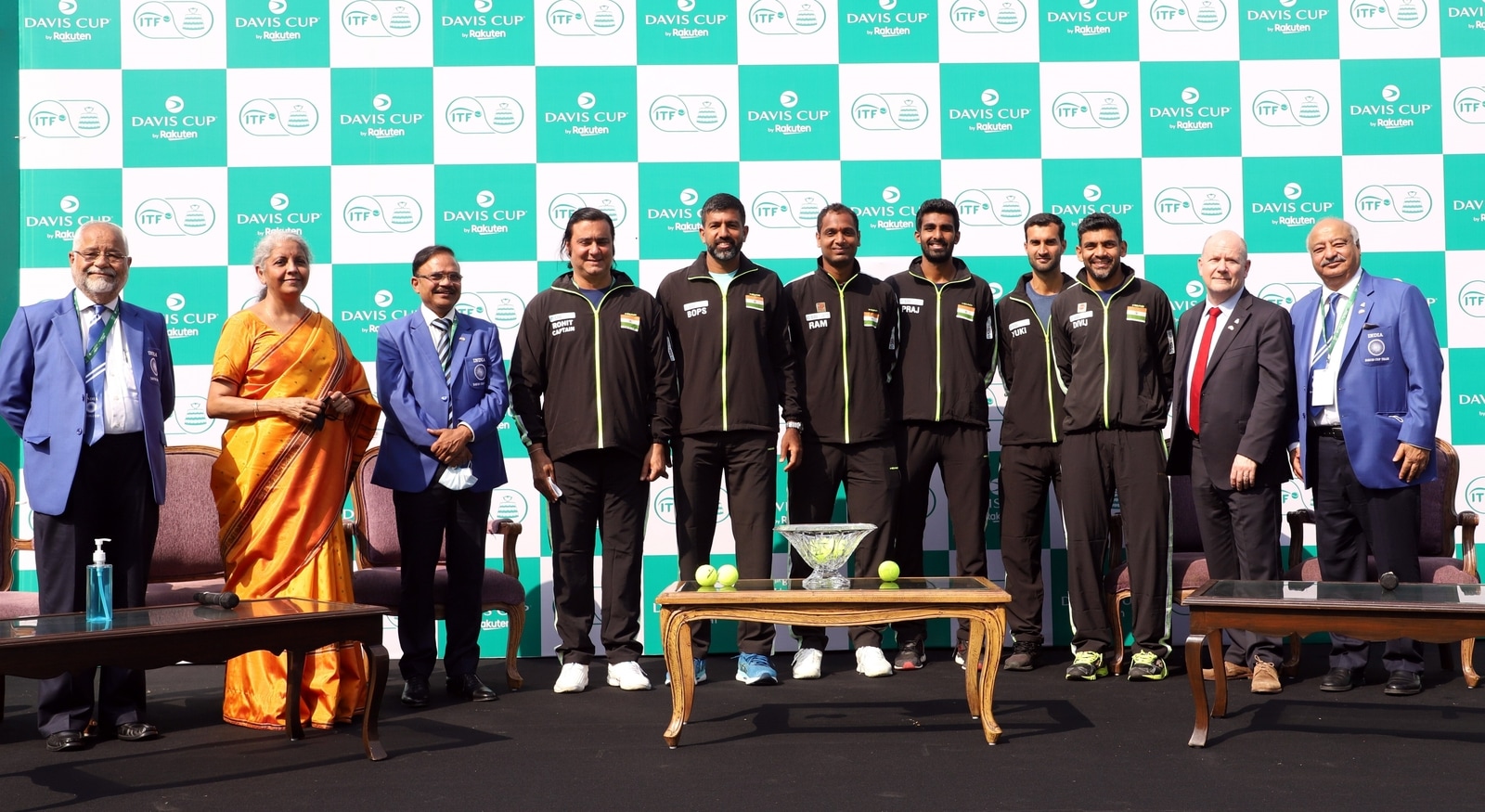Huge white canopies on lush green lawns greet you at Delhi Gymkhana, the 109-year-old club located in the heart of Lutyens’ Delhi, which is hosting a Davis Cup tie after over four decades.
Though 1978 was the last time the iconic club—founded as the ‘Imperial Delhi Gymkhana Club’, the first word was dropped after Independence—held a Davis Cup tie, it is the 1966 inter-zonal semi-final against West Germany that is most remembered.
Back in the day, Delhi Gymkhana and Calcutta’s (now Kolkata) South Club were the two main venues for grass court competitions in the country with the who’s who of Indian tennis—be it Ramanathan Krishnan, Jaidip Mukerjea or Vijay Amritraj—regularly gracing their lawns. And 1966 was a significant year as it was the first time—out of three (1974 and 1987)—that India reached the final of the Davis Cup.
After beating Japan 4-1 in the eastern zone final, India were drawn to play the inter-zonal semi-finals against West Germany at Delhi Gymkhana in November. “It happened there and not where the current main court is,” said Mukerjea on Thursday, pointing in the direction of the current practice courts.
Ramanathan Krishnan was India No.1 with Mukerjea No.2 and they beat Wilhelm Bungert and Ingo Buding to put the hosts 2-0 ahead. Krishnan pulled out of the doubles contest due to injury, leaving Premjit Lall to make a scratch pair with Mukherjea. Buding and Bungert took advantage to give the European team a point. But Mukherjea won the reverse singles on Day 3 to hand India the match before Lall lost the inconsequential dead fifth rubber.
“West Germany was led by the formidable Bungert (who reached the final of Wimbledon a year later),” said Krishnan, 84, speaking from Chennai. “I had come out of injury (back and wrist) and suddenly struck my best form. Both I and Mukerjea beat Bungert. I gave a fine start to India, winning the opening match against him.”
Mukerjea too had fond remembrances of the tie. “Akhtar Ali was our coach and RK Khanna captain. Bungert was a great grass court player. Those were the best matches I have played,” said the 79-year-old Mukherjea, who reached the fourth round of all Grand Slams. “There was a big crowd, film stars Dilip Kumar and Saira Banu also came to see the matches.”
India then came back to beat Brazil 3-2 in a cliff-hanger in the inter-zonal final at South Club. India lost the final, then called the challenge round, 1-4 to Australia, in Melbourne. “In those days the defending champions only played the final tie,” said Mukerjea.
Tasty pakodas
But that tie wasn’t Krishnan’s first trip to the Gymkhana. The two-time Wimbledon semi-finalist, in fact, had his first taste of the club’s pakodas (fritters) as an eight-year-old.
“In 1945, my father TK Ramanathan was the best tennis player in Delhi. One afternoon, he took me on his bicycle to watch tennis at the club. It was wartime, the British hadn’t yet left India and the club had more foreign members—British and Americans, who were serving their armies. Apart from my father, there were a few other Indian players,” said Krishnan.
“I was a school boy—very active and disturbed the players on court which embarrassed my father. Quickly, he got me a plate of ‘garam pakodas’ with tomato ketchup. I sat in a corner enjoying the delicious snack. The Gymkhana had good eats even 75 years ago. Little did anyone realise that here was an eight-year-old boy who would become the focus of attention within 10 years.”
Krishnan’s son Ramesh also played at the Delhi Gymkhana in 1978 when India lost 1-4 to New Zealand in the eastern zone semi-finals.
Despite having 28 grass courts—Wimbledon has 41—the venue was never chosen for the Davis Cup after 1978 because of India’s preference for hard courts. That meant the Delhi Lawn Tennis Association (DLTA) complex, some 7km south of the Gymkhana, became the theatre for a number of ties.
After 44 years of quiet, Delhi Gymkhana is back being the cynosure of Indian tennis. “Davis Cup 2022 at the Delhi Gymkhana Club could well be remembered as a game changer in several ways,” said club administrator Pathak, who is also the co-chairman of the organising committee.
Seeded second among 24 teams in the World Group I playoffs, India will face Denmark on Friday and Saturday with the winner progressing to World Group I where the next tie will be played in September.
This will be India’s third contest against Denmark and first in India, having lost 0-5 in 1927 Copenhagen before coming out on top 3-2 in Aarhus 1984.
This is also India’s first home tie in three years with Delhi hosting a Davis Cup encounter after six years when Rafael Nadal-led Spain whitewashed India 5-0 in the World Group playoff at the DLTA complex.
The dip in Covid-19 cases in the capital means almost 4,000 spectators will be allowed in the makeshift stadium. “All tickets will be complimentary on first-come first-serve basis,” said Pathak.
For all the latest Sports News Click Here
For the latest news and updates, follow us on Google News.

